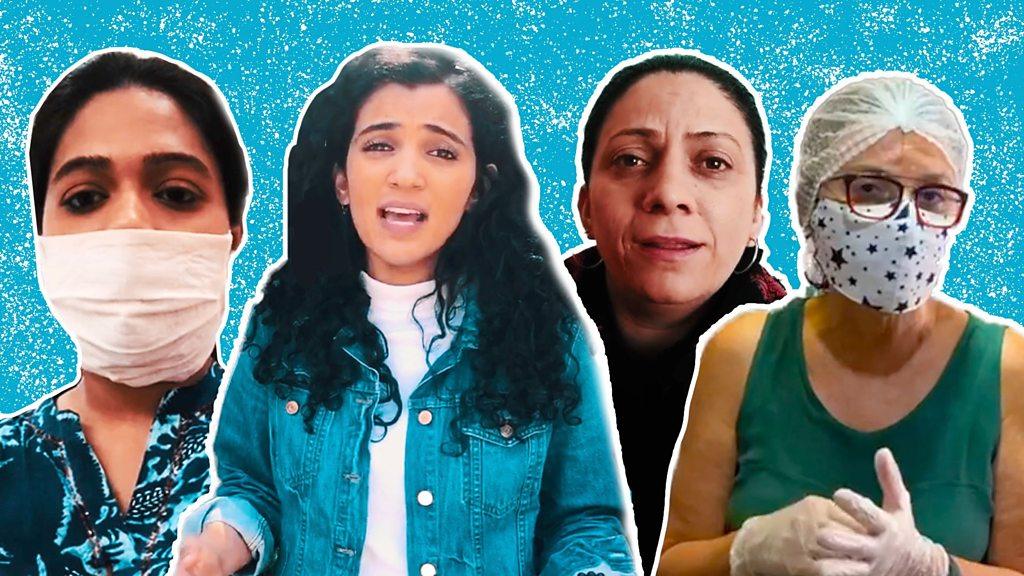Victoria Derbyshire: My father was violent - I understand the terror of lockdown
- Published
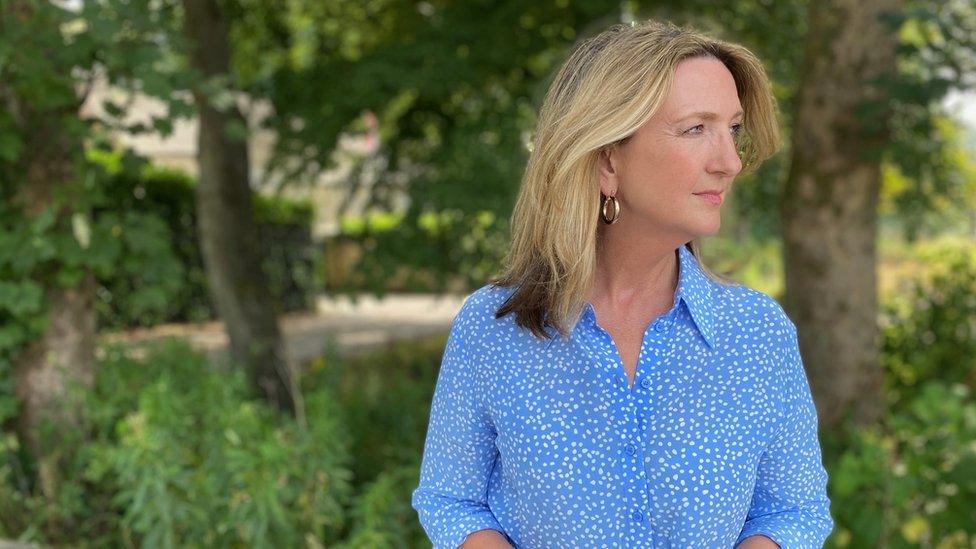
Growing up, I remember my whole body tensing every time I heard my father's key in the back door.
What mood would he be in when he came home from work? Would he provoke an argument? Would it lead to him hitting me, whipping me with his belt or just slapping me round the back of my head?
I was fortunate I could escape sometimes to my best friend's house down the road to get out of his way.
And the next day my father would go to work again, and I'd go to school, which meant respite from the disruptive shouting and cruel violence.
The love in our lives came from my amazing mum who did everything she could to make up for his failings.

This article contains descriptions of violence some readers may find disturbing.
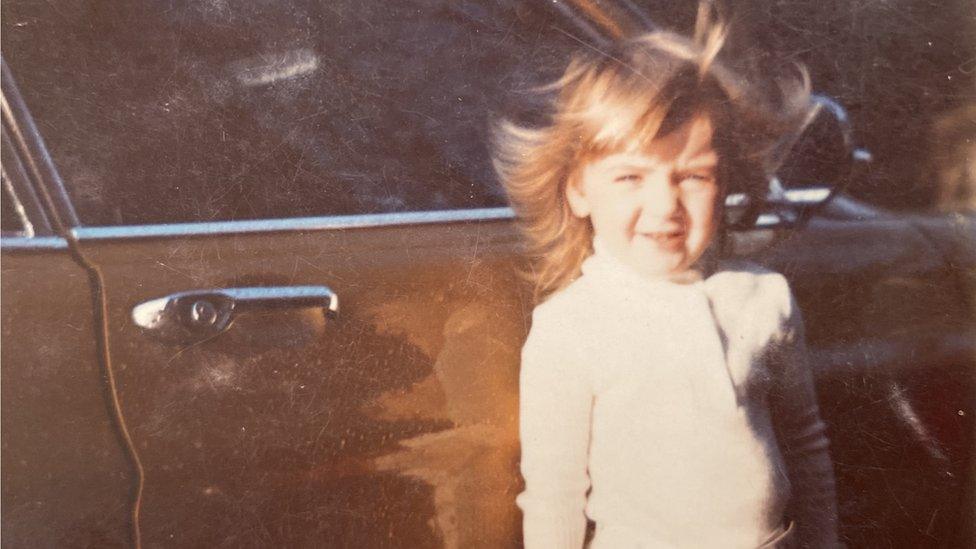
Me as a child growing up in Lancashire
When the prime minister told us all to stay at home because of coronavirus, one of my first thoughts was for those living in abusive households - women, men and children, essentially trapped, forced to stay inside week after week. What would happen to them?
Spending the last few months finding out about the reality of domestic abuse under lockdown has been shocking - but I've also met women who've courageously escaped during the most challenging circumstances.
I've spent time inside refuges which were full, meeting support workers on the ground who were under pressure, and talking to people who were subjected to levels of abuse they often hadn't experienced before.
Jess* had been with her violent husband for many years. During their relationship he'd assaulted her multiple times - punching her, strangling her, controlling what she wore and how she styled her hair.
She says she had to ask his permission to make a cup of tea and even go to the loo. But when lockdown was imposed, the violence escalated to more extreme levels.
Like most of us, Jess and her husband were watching Boris Johnson as he instructed the nation to stay at home to stop the spread of Covid-19. It was then that he turned to her and said chillingly, 'Let the games begin'.
Her story is one of the most brutal I've ever heard.
She told me he raped her more than a hundred times. "Curtains would get closed, TV would be up loud, front door would be locked, music would be turned up so nobody could hear me screaming," she recalls. He burned the top of her legs with cigarettes 'so no-one would ever want her'.

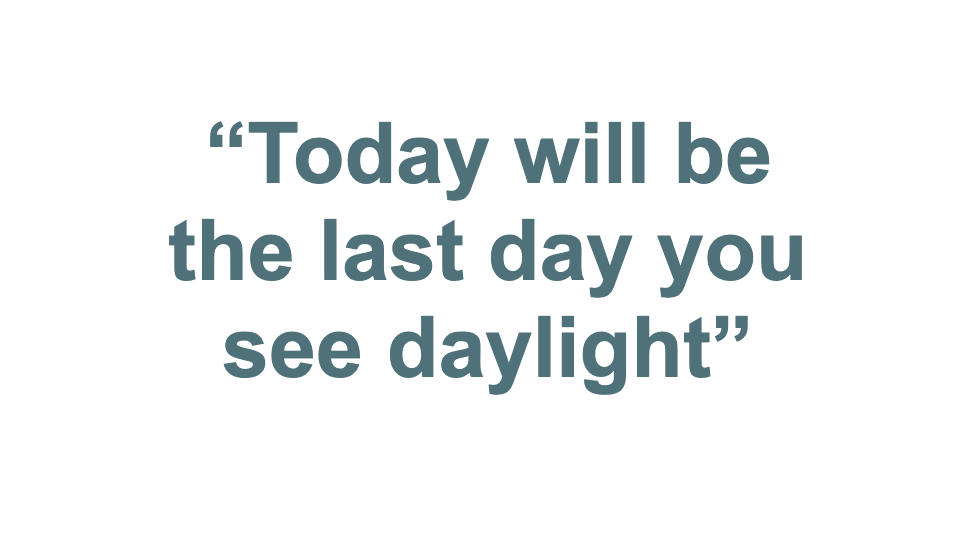
BBC Panorama has learned the intensity of abuse escalated in lockdown - offences included poisoning and strangulation.
Women's Aid has been working on the first in-depth research project about the effect confinement had on domestic abuse. Of the people they spoke to, almost two-thirds of those living with their abuser said the violence got worse, and three-quarters said lockdown had made it harder for them to escape.
Meanwhile, calls to the Respect Men's Advice Line for male victims increased by 65% during the first three months of restrictions.
For some, the pandemic was used by their abuser as a form of control.
When I asked Jess what the 'stay at home' message meant to her, she simply said: "Death."
Three weeks into lockdown her husband declared 'today will be the last day you see daylight'. She knew she had to get out or she feared she'd be leaving her home "in a wooden box".
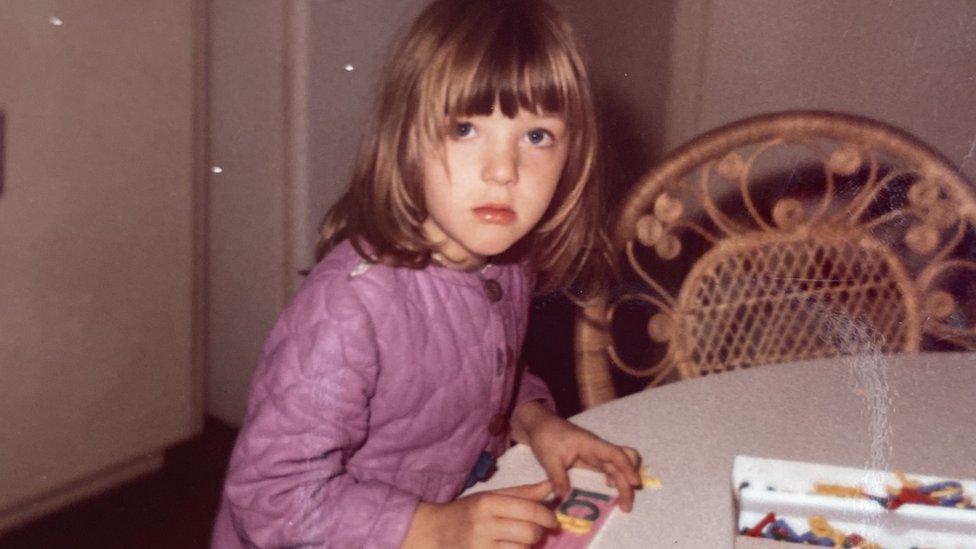
For me school was a respite from my father's violence
When I was around 12 years old, I remember running to the police station after my father locked my mum in their bedroom and began beating her up.
I was scared he was going to kill her.
Our phone had been cut off because he hadn't paid the bill - another way of trying to isolate us from friends and family.
I ran as fast as I could the mile or so to the station and, out of breath, pleaded with the officer behind the desk to come and help.
But in lockdown, some of those in violent relationships struggled to even pick up the phone to dial 999, let alone run for help, because their abuser was at home 24/7.
Jess knew she had to get through to the police somehow in order to save her life, but she couldn't alert her husband.
While he slept on the sofa, she googled 'how to contact the police without calling them', terrified he would wake up. After texting REGISTER to 999 and receiving an initial response, she sent them her address. Officers arrived within minutes.
Panorama has found in the first seven weeks of UK lockdown someone called police for help about domestic abuse every 30 seconds - that's both female and male victims.
I returned to the house where I grew up, for the first time in 35 years, for BBC Panorama
It took the Westminster government 19 days after imposing restrictions to announce a social media campaign to encourage people to report domestic abuse, as well as an extra £2m for domestic abuse helplines.
Fiona Dwyer, chief executive of Solace, one of the biggest providers of refuge spaces told me, "the government's inaction and slowness to respond made an incredibly challenging period even more challenging".
"If you look at who was in the Cabinet, it's a lot of very privileged men. So maybe it's not an issue they think about," she says.
I haven't met one survivor, charity worker or domestic abuse advocate in the last few months who said they had seen any evidence the government in England had considered the effect lockdown would have on those living in an abusive household.
But safeguarding minister Victoria Atkins denied they were too slow to act. The government was "alive to the risks of domestic abuse", was talking to charities in the early days and "very much responding" she told me.
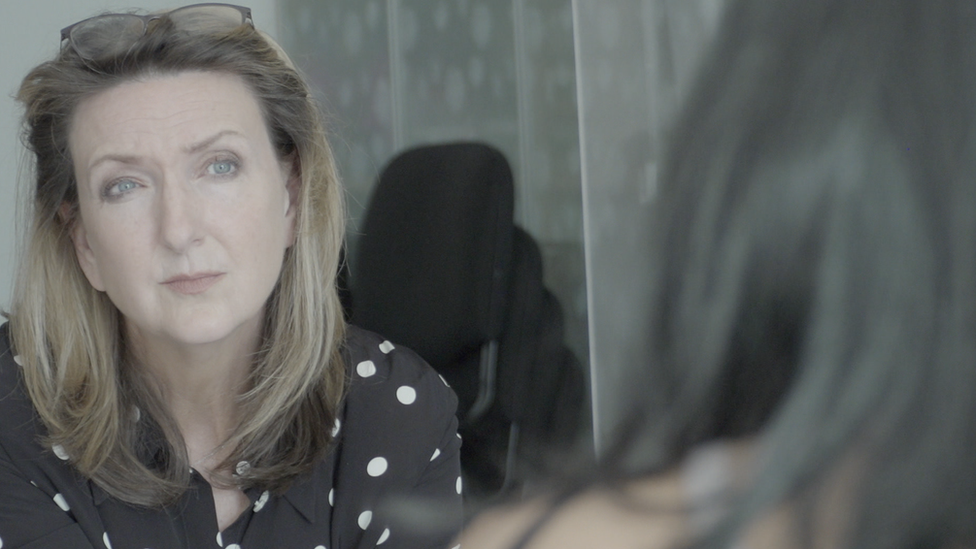
Women told me Covid-19 had been used against them as a form of control
In the nearly three weeks between the introduction of lockdown and the government launching its You Are Not Alone campaign, 11 women, two children and one man were killed in alleged domestic abuse cases.
Responsibility for those deaths lies with the perpetrators, but could lives have been saved had the government acted more quickly?
"There will be time to reflect on lessons to be learned across the pandemic", Ms Atkins told me. She said she was working to scrap the October deadline requiring charities to spend the emergency government funding they received.
Stopping lockdown domestic abuse on my street
Domestic abuse victims to get better protection in family courts
Jess had to leave her home and her only option was to try to find a place in a refuge. Her life since she arrived at one in Wales run by the charity Llamau has been transformed - thanks to support from the dedicated staff and caring fellow survivors.
The UK potentially faces a further coronavirus spike and more local lockdowns as we head towards winter. Solace's Fiona Dwyer said the UK government has to make sure there is "robust sustainable funding for future services".
My parents got divorced when I was 16 and that's when we escaped the violence. But not all domestic abuse survivors leave their home. Why should they have to? Others can't because they are terrified their abuser will come after them; many simply can't afford to go because they aren't financially independent.
For those like Jess who did take that step during lockdown, it has been liberating. "I feel safe. I don't feel threatened. I can go to bed at night knowing nothing's going to happen to me."
If you've been affected by domestic violence you can get help by calling the National Domestic Abuse helpline on 0808 2000 247 and in Scotland 0800 027 1234. There is also the Respect Men's Advice Line on 0808 801 0327.
*Not her real name
You can watch BBC Panorama 'Escaping my Abuser' on BBC One at 19:30 BST and on BBC iPlayer.
- Published23 July 2020
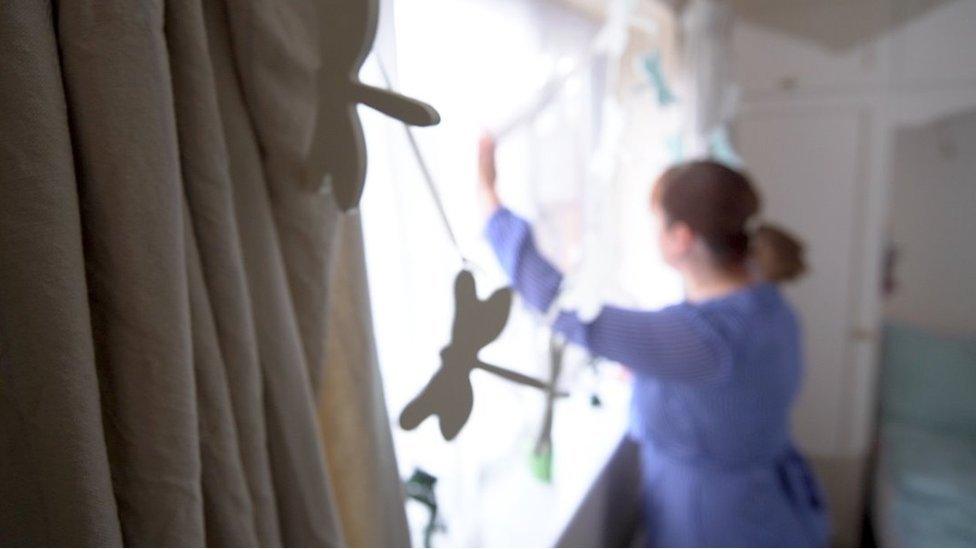
- Published25 June 2020
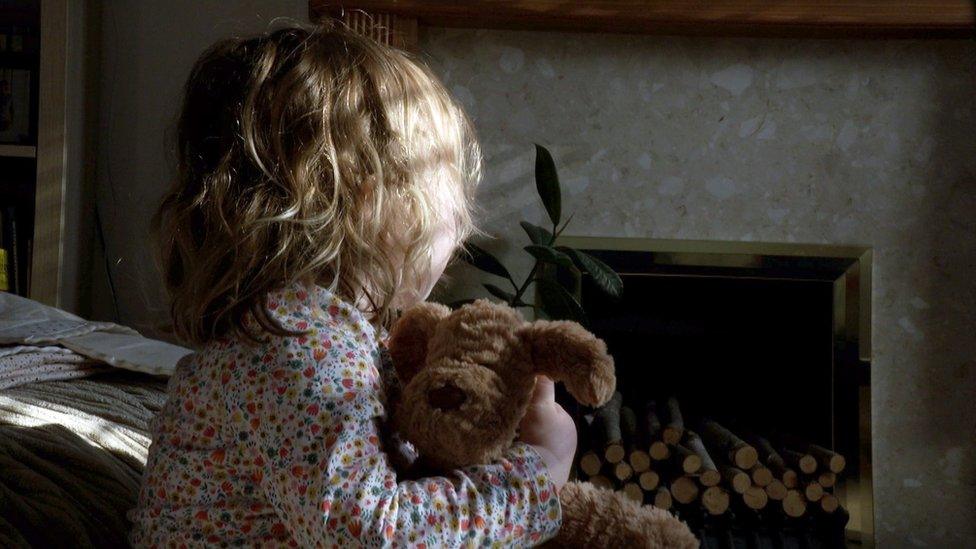
- Published28 April 2020
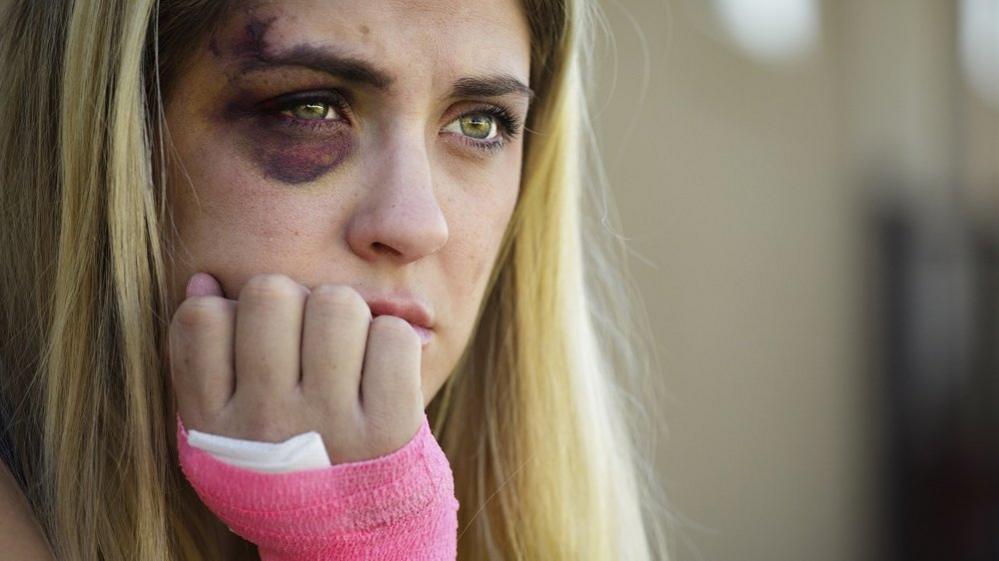
- Published30 July 2020
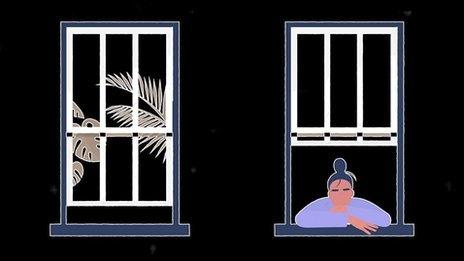
- Published12 June 2020
